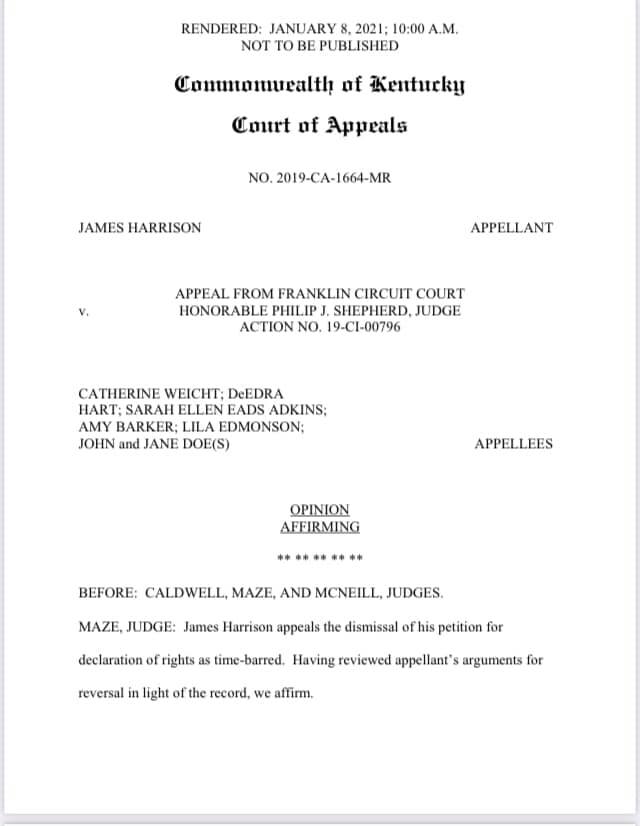
In an unpublished opinion that suggests the pitfalls of an open records appeal by a pro se appellant, the Kentucky Court of Appeals ruled on January 8 that James Harrison's appeal from Kentucky State Penitentiary's handling of his request to inspect intake medical records is time barred. He lost because he failed to file his appeal from the attorney general's decision favoring KSP within the statutorily prescribed timeframe.
http://opinions.kycourts.net/COA/2019-CA-001664.PDF
Harrison is an inmate housed in the correctional facility. He represented himself. Based on the court's description of its tortured history, it is unlikely that even the most skilled litigator could have salvaged the case.
Here are a few takeaways.
o Either party in an open records appeal to the attorney general —the requester or the agency — may appeal the resulting attorney general's open records decision to the circuit court but must file the appeal within thirty days. Otherwise the attorney general's decision becomes binding on the parties and enforceable in the courts. Because Harrison failed to file within thirty days, his appeal was dismissed, and the attorney general decision was binding on him.
This restatement of the law is critical in a time when public agencies regularly ignore attorney general's decisions for thirty days and beyond. When requesters attempt to enforce the attorney general's decision, the agencies raise defenses and object to disclosure as if they were not bound by the attorney general's decision. This forces the requester into court to enforce the decision. Since the agencies are bound by the attorney general's decision, the circuit court should not relitigate the records access issue and should award the requester penalties, fees, and costs.
o Harrison was never denied access to the medical records he requested and therefore suffered no injury. He was simply instructed to use a required medical records request form.
The attorney general has consistently recognized that open records requesters cannot be required to use a particular agency request form. Agencies may offer the requester a request form but cannot condition the requester's right to public records on the use of the agency's form. A request is adequate if it describes the records and includes the requester's signature and name legibly printed.
Inmates occupy a unique status by virtue of their confinement and can be required to adhere to additional open records Department of Corrections' policies that are adopted in administrative regulations.
As noted, James Harrison v. Catherine Weicht, et al., 2019-CA-1664-MR, is an unpublished opinion and therefore cannot be cited as authority in the courts.



